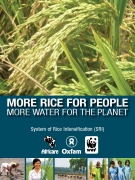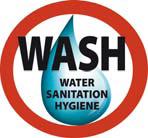/topics/contamination-pollution-and-quality
Contamination, Pollution and Quality
Fluoride free drinking water supply in North Gujarat: The rise of Reverse Osmosis plants as a cottage industry - A study by CAREWATER
Posted on 10 Aug, 2010 10:04 PMThe study by Carewater INREM Foundation explores the rise of Reverse Osmosis (RO) plants since 1970s as a cottage industry for providing fluoride free water supply in North Gujarat.
Ingress of saline water in coastal aquifers of Junagadh – A report by CAREWATER
Posted on 08 Aug, 2010 12:02 AM Salinity in coastal groundwater is a widespread problem and may be caused by individual or combined effects of inherent salinity, tidal effect, irrigation by saltwater and by seawater intrusion due to extensive pumping.
Salinity in coastal groundwater is a widespread problem and may be caused by individual or combined effects of inherent salinity, tidal effect, irrigation by saltwater and by seawater intrusion due to extensive pumping.
Groundwater contamination and rural water treatment in Gujarat - a discussion paper by Carewater INREM foundation
Posted on 07 Aug, 2010 06:09 PM The state is characterized by varied hydrogeology and vast areas are faced with typical groundwater quality problems like fluoride.
The state is characterized by varied hydrogeology and vast areas are faced with typical groundwater quality problems like fluoride.
Fluorosis in Gujarat: A disaster ahead – A report by CAREWATER
Posted on 07 Aug, 2010 08:53 AMInvitation for case study submission in water magazine
Posted on 06 Aug, 2010 11:26 AM
Our publication is coming up with the annual "Case Study Special Issue” in Sept. 2010. Its a collector’s issue, where we are covering leading industries across the globe.
Impacts of groundwater contamination with Fluoride and Arsenic: A report by CAREWATER
Posted on 04 Aug, 2010 10:25 AM
The field research study conducted by Carewater INREM Foundation attempts to establish the impacts of groundwater contamination with fluoride and arsenic in India. It maps the affliction severity, the medical cost and wage loss through a multi-location study in some villages in the States of Rajasthan, Andhra Pradesh, Karnataka and West Bengal.
Reverse Osmosis plants for rural water treatment in Gujarat - A study by CAREWATER
Posted on 03 Aug, 2010 10:21 PM The report by Carewater INREM Foundation deals with Reverse Osmosis (RO) technology, which is emerging as an important solution for drinking water treatment in rural Gujarat. RO plants with capacity ranging from 10 litres per hour (lph) to 6000 lph are now supplying drinking water in several hundred villages of the State. Small sized plants with capacity < 20 lph are used by individual families whereas medium to large sized plants (>100 lph) are being used for public consumption.
The report by Carewater INREM Foundation deals with Reverse Osmosis (RO) technology, which is emerging as an important solution for drinking water treatment in rural Gujarat. RO plants with capacity ranging from 10 litres per hour (lph) to 6000 lph are now supplying drinking water in several hundred villages of the State. Small sized plants with capacity < 20 lph are used by individual families whereas medium to large sized plants (>100 lph) are being used for public consumption.
Groundwater and well water quality in alluvial aquifer of Central Gujarat - A paper by CAREWATER
Posted on 03 Aug, 2010 08:58 PM The report by Carewater INREM Foundation deals with groundwater and well water quality in the alluvial aquifers of Central Gujarat. Gujarat has a hydrogeology representative of almost all aquifer types and depositional & formation eras. Contamination of aquifers along with scarcity of groundwater resources due to increase in water demand and reduction in recharge of groundwater from changing landuse, is a problem in Central Gujarat.
The report by Carewater INREM Foundation deals with groundwater and well water quality in the alluvial aquifers of Central Gujarat. Gujarat has a hydrogeology representative of almost all aquifer types and depositional & formation eras. Contamination of aquifers along with scarcity of groundwater resources due to increase in water demand and reduction in recharge of groundwater from changing landuse, is a problem in Central Gujarat.
India WASH forum e-newsletter - Update 13 July 2010
Posted on 02 Aug, 2010 11:56 AMWe see this newsletter as a platform for independent credible voice in the water and sanitation sector. Our emphasis is on bringing together critical news and information with analysis. In this issue we share news and analysis on topical issues and developments.
The Department of Drinking Water and Sanitation(DDWS) has simultaneously invited inputs to Discussion Papers on Drinking Water and Sanitation, circulated on Solution Exchange. Inputs given by India WASH Forum, on this, is enclosed in this Update. We have pointed out the missing elements of sanitation improvement strategy that include, criticality of providing water as an inseparable component to household sanitation, the tendency to see behavior change as a lifestyle issue and not linked to the hardware components, peoples livelihoods and living conditions. Suggestions for what needs to be done to strengthen the implementation mechanism of the flagship sanitation programme(TSC) and partnerships.
More rice for people - More water for the planet - A WWF-ICRISAT report about System of Rice Intensification
Posted on 02 Aug, 2010 02:08 AM This project report by WWF-ICRISAT begins by highlighting the importance of rice as a major source of calories for half the world’s population and also as the single largest source of employment and income for the rural population.
This project report by WWF-ICRISAT begins by highlighting the importance of rice as a major source of calories for half the world’s population and also as the single largest source of employment and income for the rural population.
It makes connections between rice production and its impact on the environment and argues for need to adopt techniques such as System of Rice Intensification (SRI) to improve produce and reduce the damage to the environment.
For example, current practices at genetic uniformity can make crops more vulnerable to pests and diseases. They are also wasteful of increasingly scarce and costly resources such as water and fossil fuels. Heavily fertilised, continuously flooded rice fields produce greenhouse gases that contribute to global warming, and misuse of inorganic fertilisers and agrochemicals results in soil and water pollution. Evidence indicates that there has been a gradual slowdown in the yield gains of rice in many countries.






